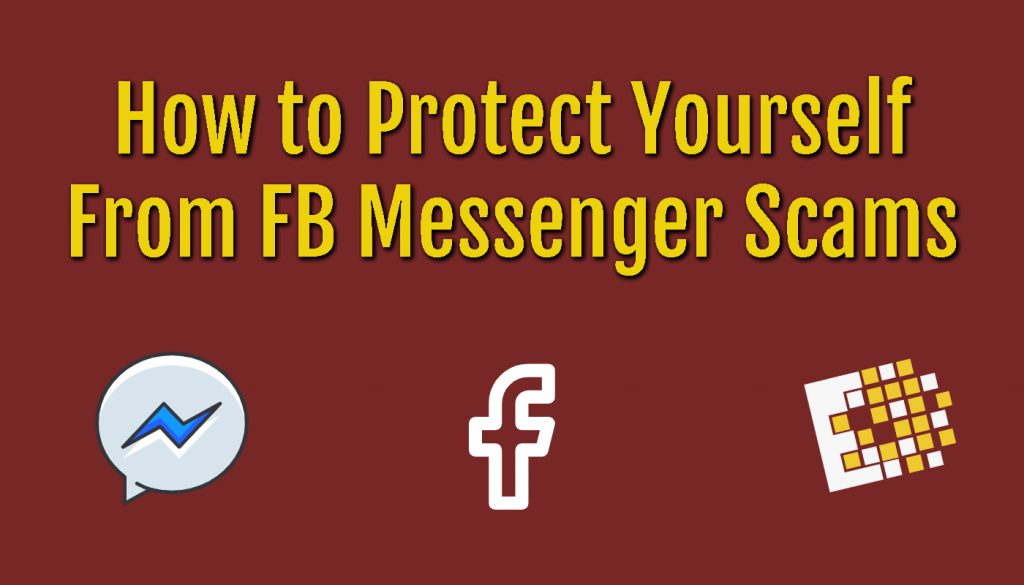Facebook Messenger is a great way to keep up with family and friends, but it can also be a method for scammers.
A few scenarios We’ve Seen Lately:
- The”Friend” Impostor
Sometimes a message will arrive over Facebook Messenger that appears to be from a friend down to their name and picture — so you have no reason to question it. Then when the conversation advances you’ll be able to tell this isn’t actually your friend but likely bot or an imposter trying to gain more information or cheat you. - The Business Grant/Loan Trick
In this scenario, it’s a No Credit Check Loan or Grant… that sends you to a phony website to type in your personal information, and you’d be contacted shortly thereafter with the good news: You have been approved for a $80,000 grant. After a while you’ll be approached to pay a fee, such as $1,200, to release the funds into your account. Many fall for it.
Facebook is acutely aware of these scams and has removed more than 3.2 billion bogus accounts between April and September 2019, compared with over 1.5 billion during the same period last year, according to the business’s last Community Standards Enforcement Report printed in November.
To sniff out accounts, the social media giant says it’s using artificial intelligence measures and technology, along with better reporting programs, and human inspection as an added layer of defense.
Steps You Can Take to Fight Cyberscams
•Never accept an invitation from somebody you do not recognize — or worse, it only says”Facebook User” and there’s no photo. If they a Facebook friend, or Even if the individual is recognized by you, be suspicious when receiving these sorts of messages within Facebook Messenger. Contact them in a different fashion — like a phone call, email or text message, if it’s really your friend, if you aren’t certain — and confirm it had been sent by them. Odds are, it won’t be.
• Block the person who sent the message to you and report them to Facebook away from within Facebook Messenger. On the program, tap on the little”I” tab, select”Block” and then tap”Something’s Wrong” to report it. On the desktop version, tap the Options (an icon of a small gear) to do the same. You can also send a message to Facebook at phish@fb.com.
• Use common sense. Never pay for a”free” grant. It’s a scam, if you must pay something to be given a grant. And it is not just grants; similar scams involve loans, lotteries, and requests for charitable donations.
• Watch out for “distress scams,” too. This is where you get a message that appears to be from among your Facebook friends, saying they need money because of a situation they got themselves into. When in doubt, contact them.
• Be suspicious of attachments, if they are sent over Facebook Messenger or in text or an email. They may contain malware (malicious software). Be equally as cautious with links. If you land on a page that’s supposed to look like Facebook and accidentally fall for it — it might have a blue emblem and layout that is familiar — you’ll see the URL will be different.
• Scammers are becoming increasingly sophisticated, as evidenced by cloning a friend’s page, and grammar and their spelling is getting better. (In the past, misspelled words and awkward phrasings were giveaways of fraudulent efforts.) Some friend requests are A.I.’bots, too, which can be tricky to tell.
• Change Passwords Often. A lot of us are guilty of using the same password for many or all activity that is online or not regularly changing passwords. While it’s less suitable, also enable two-factor authentication, where you will not need a password however a one-time code sent as well, to confirm it’s really you.
• Whether it is a smartphone, tablet, laptop or desktop, enable auto updates so your operating system and software will be updated if “patches” to vulnerabilities are found and fixed.
 Tech Tuesday is heard each Tuesday on Mix102.5 with Big Poppa and CCNY Techs Marketing Guru Daryl Ledyard. Since 1988, CCNY Tech has been an IT Hardware Sales and Services company. Ten years ago, CCNY Tech has added IT Asset Disposition to it’s offerings.
Tech Tuesday is heard each Tuesday on Mix102.5 with Big Poppa and CCNY Techs Marketing Guru Daryl Ledyard. Since 1988, CCNY Tech has been an IT Hardware Sales and Services company. Ten years ago, CCNY Tech has added IT Asset Disposition to it’s offerings.
